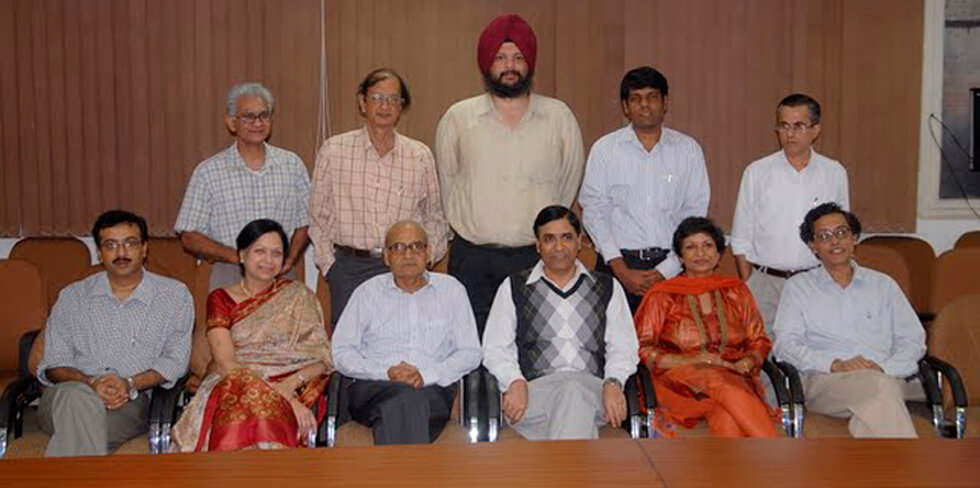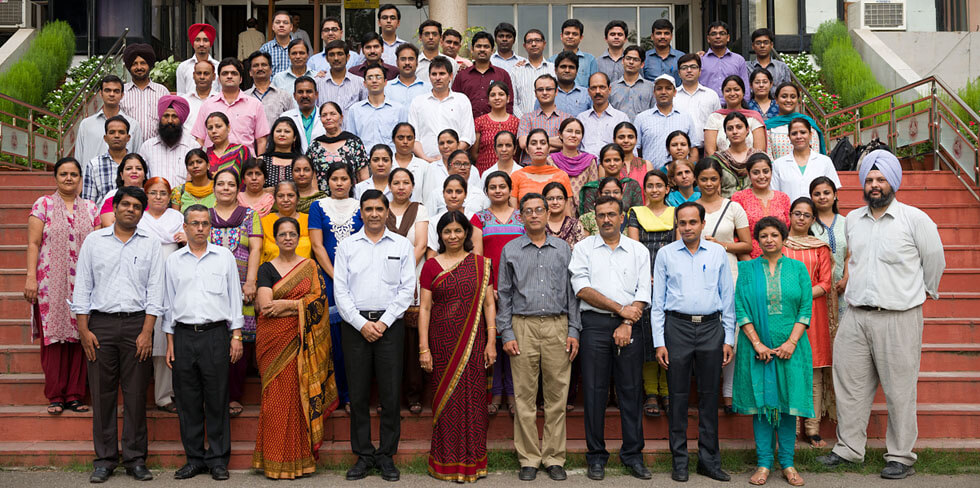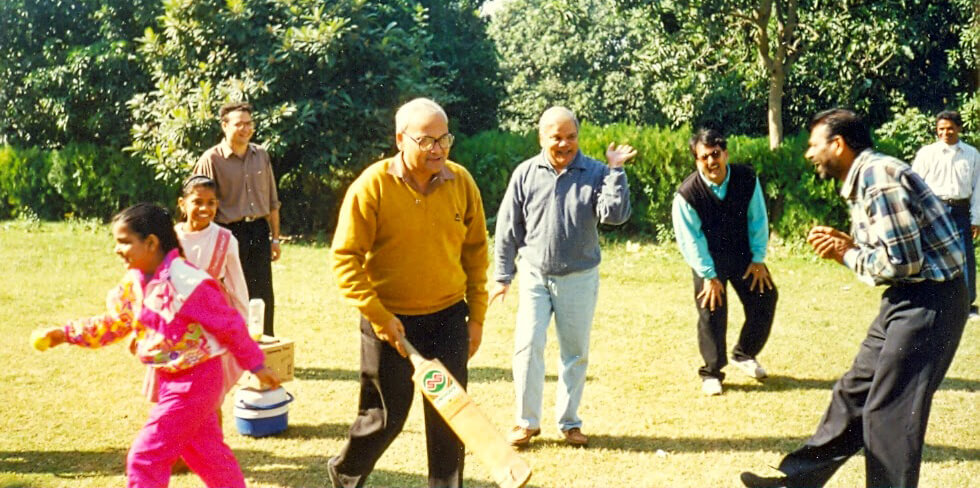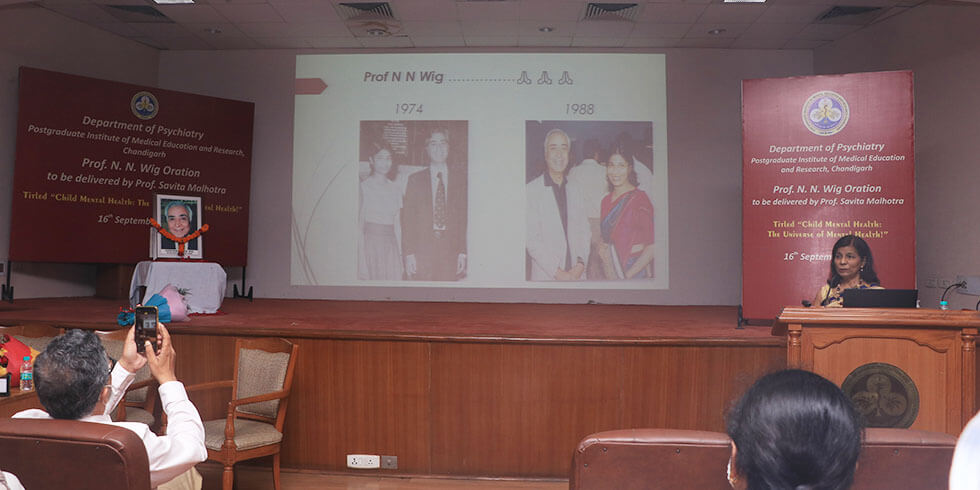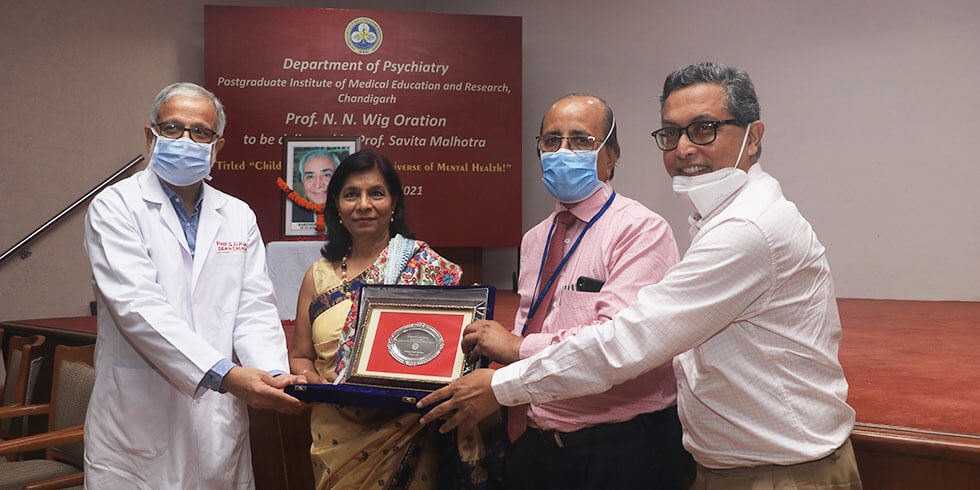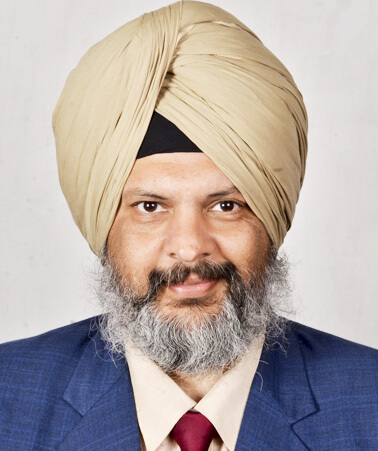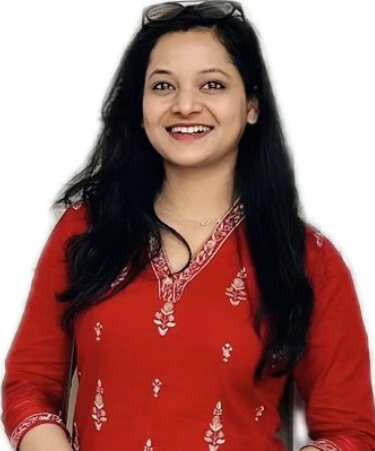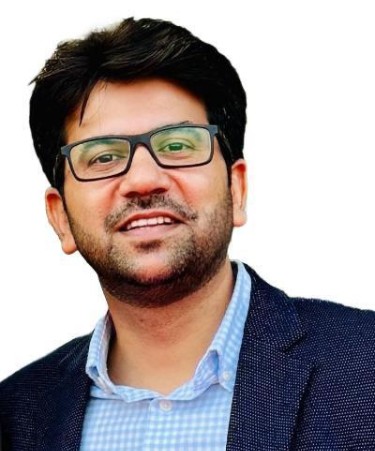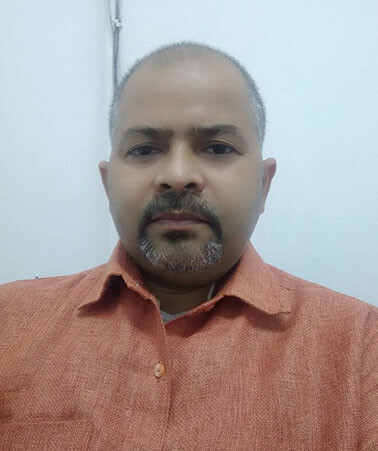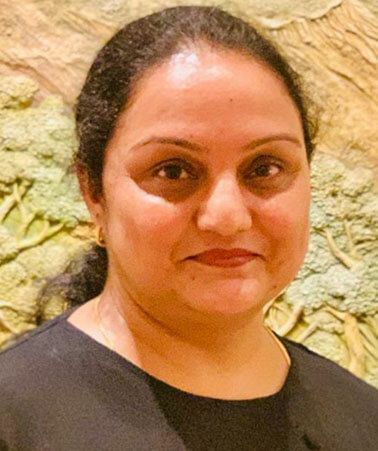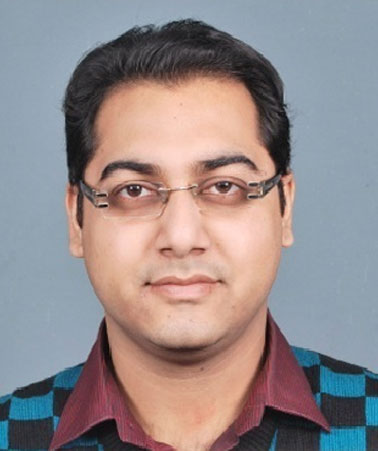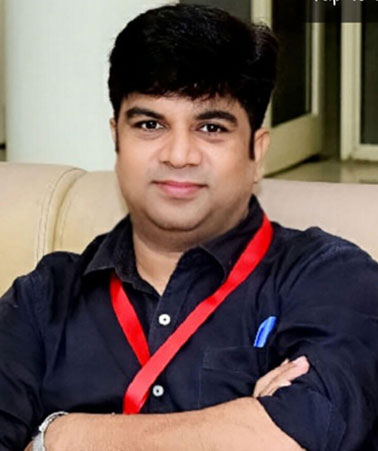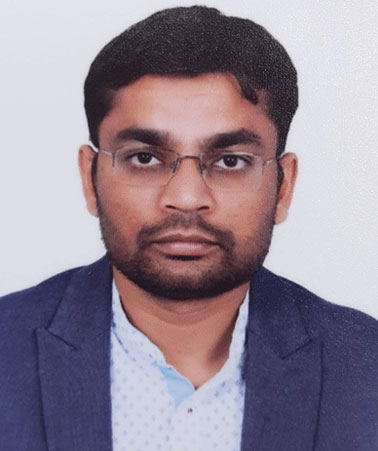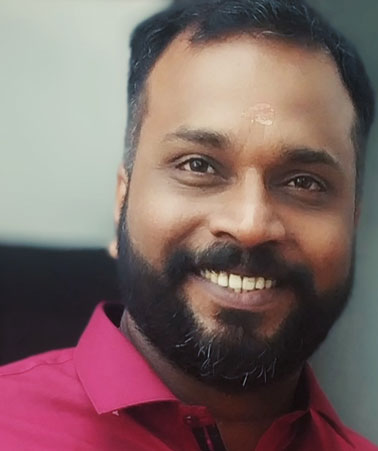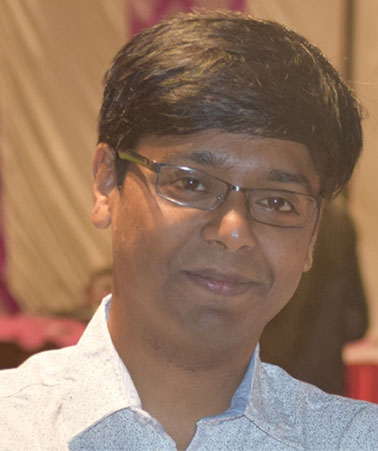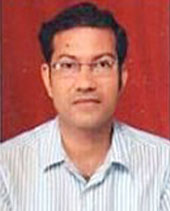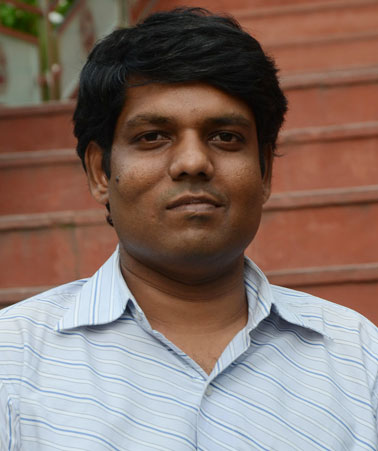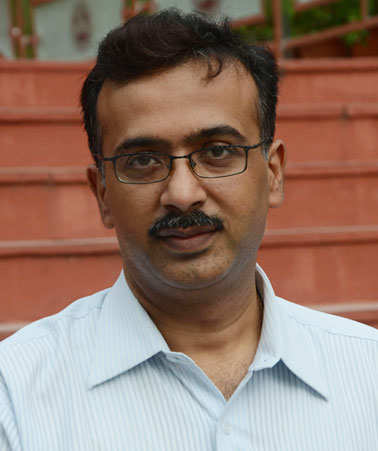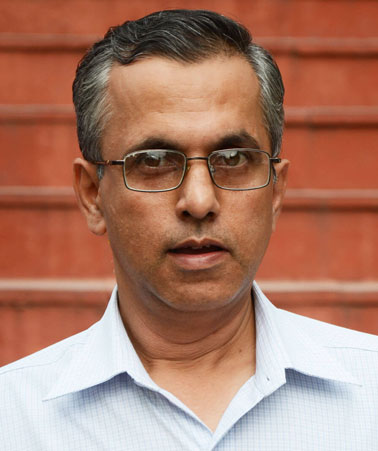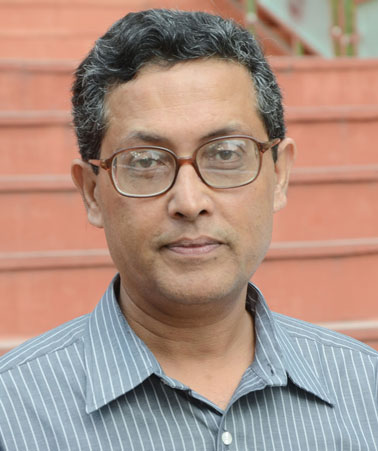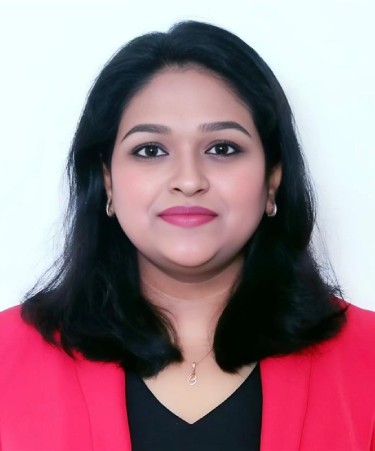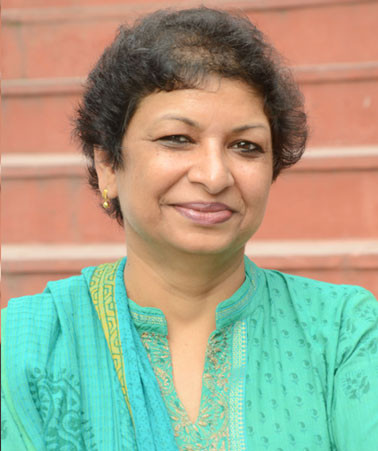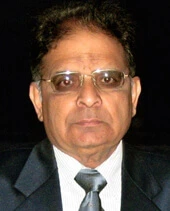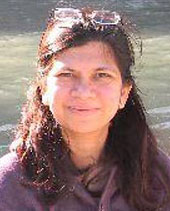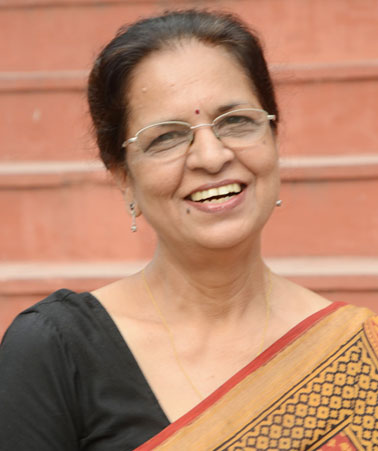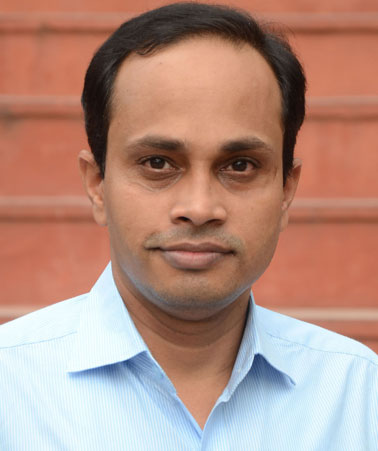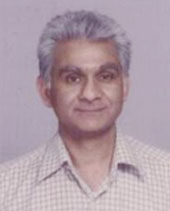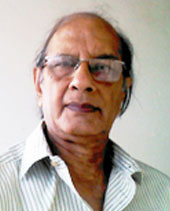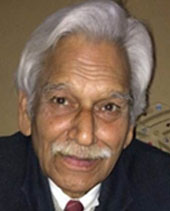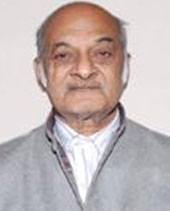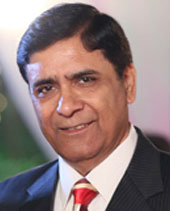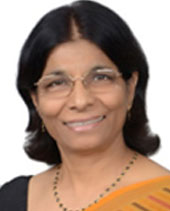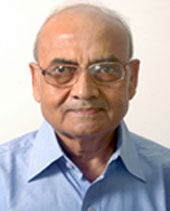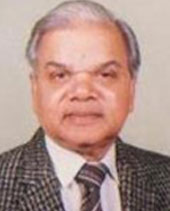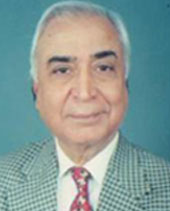The Department has been running its DM (superspeciality) course in Child and Adolescent Psychiatry (CAP) since 2014. The candidates must possess MD in Psychiatry for admission to DM-CAP.
Preamble:
Mental health care for children and adolescents, focusing on their achieving and maintaining optimal psychological, social functioning and well being: Good Mental health is crucial for their ability to develop into an active, productive member of the society with a sense of identity and self worth, have sound family and social relationships, moral and ethical values; capacity to tackle challenges and adapt thus maximizing growth. Considering the continuity between many childhood and adolescent-onset disorders into adulthood, interventions during childhood have the potential to optimize their developmental trajectories and also to prevent adult mental disorders in later life. This whole area of knowledge and expertise falls within the purview of child and adolescent psychiatrists
Goal:
To create such super specialists in the field of Child and Adolescent Psychiatry (CAP) including learning disabilities, who can function as experts in the field proficient in clinical acumen/skills of patient care; in active teaching; productive research; and advocacy
The DM course is targeted to develop the candidate’s proficiency in clinical acumen and skills so as to enable them to function as experts in the field of CAP including learning disabilities in a variety of settings. This training will equip the trainee with the skills in patient care, to pursue teaching and research careers in the field of CAP
The candidate will have in-depth knowledge of the diagnoses and management of psychiatric disturbances in children and adolescents including learning disabilities. In addition they will have good knowledge of conditions such as epilepsies, neuro-developmental disorders, in born errors of metabolism, common pediatric conditions and of the investigative procedures including electrophysiology and imaging. They will have a clear understanding of clinical and developmental child psychology and methods of evaluation and therapy. The candidate will at all times work towards including preventive and promotive aspects of child mental health. They will be well trained in the socio-cultural, legal and administrative perspectives on child and adolescent mental health
On completion of the course the candidate should be able to deliver the highest quality of patient care, advocate on child mental health and be a competent and inspiring teacher and be able to pursue and supervise both clinical and experimental research.
The specific skill sets/learning objectives are as follows:
- The trainee will have familiarity with the normal range of child behaviour, development and minor variations therein
- The trainee will have familiarity with methods of parenting and parental reactions
- The trainee will have understanding of clinical and developmental child psychology
- The trainee will receive training in diagnosis and management of majority of conditions on basis of clinical assessment and appropriately selected investigations
- The trainee will acquire competence in interviewing, examining children and their parents in hospital and non-hospital settings
- The trainee will develop knowledge of objective structured methods of assessment used for children and their parents
- The trainee will have competence in management of children with special needs, neurological handicap, mental retardation, epilepsy, and chronic physical illnesses
- The trainee will have the knowledge and proficiency to carry out range of psychological and physical treatments for emotional, behavioural and developmental disorders of children and adolescents
- The trainee is aware of the contemporary advances and developments in the discipline
- The trainee will learn basic principles of research methodology and epidemiology and the ability to critically analyze published literature relevant to the field
- Will be familiar with specialized treatment approaches such as remedial education, speech therapy, occupational therapy, counselingetc as applicable to neuropsychiatric/ neurodevelopmental disorders seen in infants, children and adolescents; and to liaise appropriately with such para-professionals
- Will learn to undertake teaching of medical postgraduates/undergraduates, as well as of para professionals and non-professionals
Course content
- Clinical CAP: Principles and practice of CAP: nosological systems, epidemiology, etiopathogenesis, course, outcome, management and prevention of common and uncommon psychiatric disorders and syndromes in childhood and adolescence. It would also include developmental disorders (mental retardation, autism, pervasive developmental disorders, specific developmental delays, ADHD), disabilities and deviations, behavioural and emotional disorders, adult type disorders with juvenile onset, schizophrenia and related disorders, mood disorders, neurotic, stress, somatoform disorders, habit and tic, control behavioural syndromes associated with physiological and physical factors, disorders of personality and behaviour, neuropsychiatric and organic brain syndromes. Somatic treatment approaches including child and adolescent psychopharmacology; psychosocial treatment approaches including play therapy, behaviour therapies, family oriented therapies and individual psychotherapy; counseling, group and other psychotherapies
- Infant Psychiatry: Psychological disorders seen in infancy including disorders of attachment, social functioning, pathological anxiety, phobias, feeding disorders, habits, and disorders of psychological development
- Child & Adolescent Substance Abuse: Mental and behavioural disorders due to psychoactive substance use including alcohol, opioids, cannabinoids, sedatives and hypnotics, cocaine, psychostimulants, hallucinations, tobacco, solvents and nay other
- Neuro-Development and child neurology: Diagnosis and management of common neurological and neuro-developmental disorders including infections, metabolic and neuro-degenerative disorders, childhood epilepsies and epilepsies, encephalopathies, cerebral palsy. Diagnostic procedures like brain imaging and electrophysiology
- Disabilities and rehabilitation: Assessment and certification of disability including intellectual disability and specific learning disabilities. Rehabilitation and remediation for various disabilities
- General Pediatrics as applicable to CAP: Diagnosis and management of common pediatric problems – infections, infestations, deficiencies, nutritional disorders and endocrine disorder and immune disorders. Developmental and preventive pediatrics including growth monitoring, immunization schedules, behavioural pediatrics
- C-L Psychiatry: Psychosocial dimensions in chronic pediatric disorders and principles and practice of C-L psychiatry
- Theories of development and clinical child psychology: Normal developmental theories i.e. cognitive, social and emotional development, biological, family and social influences on development; temperament and personality development; standardized methods of psychological evaluation
- Community CAP mental health: Working knowledge of community approaches in CAP mental health, psychiatric social work, child rearing practices and impact of social changes, child abuse, child labour, child adoption and children in difficult circumstances. Concepts and practice of school mental health.Promotive health of school and out of school children including life skill education.The ability to work with groups of children in difficult circumstances using group and experiential methodology. Liaison and training for non-governmental and governmental child care agencies in programme development and psychosocial intervention. Principles and practice of community based rehabilitation
- Basic sciences: Genetics, neuro-chemistry, neurophysiology, microbiology, virology, anthropology, sociology, biostatistics including multi-variate approaches as applied to theory and practice of CAP.
- Legal, administrative perspectives on child and adolescent mental health: Legislations, policies and programmes pertaining to children and adolescents including the juvenile justice system in India and elsewhere
- Therapeutics: Theoretical basis, principles and practice, rationale, technique, indications, contraindications, side-effects, special considerations with regard to all the known pharmacological and non pharmacological (psychological) treatment approaches
- Research methodology and statistics: Learn research methodology and statistics as applied to CAP. Will be able to undertake and supervise research
Rationale and guidelines
In keeping with the objectives of the course, it is proposed that candidates should be exposed to a syllabus that consist of not only the core clinical discipline of CAP but also the allied areas and disciplines comprising basic and clinical neurosciences, pediatrics, genetics, basic and clinical child psychology and development and other related behavioral and social sciences. The candidate is expected to achieve a high degree of competence in both theoretical underpinnings and practical applications in these areas. The syllabus has also been conceived to ensure both the breadth and depth in the knowledge in terms of recent advances, state-of-art development and historical evolution of the current knowledge base.
In addition to core clinical issues, the course focuses on valuable exposure to developmental pediatrics, child neurology, disabilities and rehabilitation, special schools system, juvenile justice system, locomotor disability, NGO systems that deal with children in difficult circumstances and child line approaches. The course also requires mandatory academic submissions, research and conference/CME presentations
During the period of study the candidate shall work under the guidance with increasing clinical and practical responsibilities. Active participation in the Seminars, Journal clubs and CCs are expected. The candidate shall be required to participate in the teaching and training programme of other students in the Department
The candidate shall work whole time in the present Department with full clinical responsibilities. During the period of study the candidate will undergo training for 2 months in Pediatrics covering general pediatrics and emergencies, and for a period of 3 months in Pediatric neurology (including genetic and metabolic disorders and neurophysiology). He/she shall also receive training in child care facilities in both Governmental like the Observational home. Juvenile homes, the non-governmental institution like Spastic Society etc. The school mental health work will be an on-going programme. They will also undergo training in De-addiction unit, Clinical Psychology, and the developmental disabilities. Training in developmental disabilities shall include a one month posting in the National Institute of Mentally Handicapped, Secunderabad. The candidate shall also be posted in General Adult Psychiatry services for developing better clinical acumen in dealing with late adolescents and young adults, and also become cognizant of the developmental course of various psychiatric disorders. They shall also work with the parents and families of children and adolescents suffering from psychiatric disorders The training in clinical psychology will involve work in behaviour therapy, neuro psychology and psychometric assessments. The candidate will continue to take up cases in these sections and will be supervised by the respective supervisor beyond the period of posting. Training in Speech Pathology will consist of one day a week for three months
During the course the candidate will attend classes on Clinical CAP, Child Development, Psycho dynamics and Psychotherapies, Psychosocial issues, Neurochemistry, Genetics, Microbiology, Virology and for investigative procedures like Neuro imaging and Electrophysiology etc
The training programme will also provide the trainee with knowledge and understanding of research methodology so that they are able to evaluate critically the literature relevant to child and adolescent psychiatry. In addition, the trainee will be encouraged to take up any other research project of some clinical innovation
Clinical Experience and Teaching
The trainee will have experience of assessing and treatment of sufficient number of children who present with range of problems commonly encountered in comprehensive CAP Services covering 0-19 yrs age group. He/She will work with children with varied socio-cultural background across an age range of pre-school to late adolescence. The range of problems will include emotional and conduct disorder, psychoses, educational difficulties, mental handicap and developmental delays with their associated psychiatric problems, and psychiatric disorders associated with physical illness and substance abuse
There will also be exposure to range of different type of family structure and dysfunction including failure of parenting
The training will also include recognition and management of common paediatric disorders and emergencies as applicable to child and adolescent psychiatry
Experience will be obtained in use of full range of treatments: Pharmacological, behavioural and psychotherapeutic. Psychotherapy should include individual, family, marital and group psychotherapy. There should be experience in assessing managing psychiatric emergencies. Experience in service to adolescents will also be provided
Specific Experience
Mental Handicap and developmental disabilities: The trainee will have clinical experience in a service specifically meant for such children
Forensic psychiatry: Trainee will have supervised experience of assessment of child abuse and neglect including familiarity with related legal procedures. He will also have experience in preparation of reports or legal advice to a court as an expert witness, advising probation on matters concerned with children‖s welfare, juvenile delinquency, child abuse, access andcustody, adoption and fostering
Adolescent Psychiatry: The trainee will have supervised clinical experience and working with large number of severely disturbed adolescents including substance abuse
Psychotherapy: The trainee will have experience in use of full range of psychotherapist commonly used in CAP. He/she should be able to use psychotherapy in a flexible way either singly or in combined with other treatment settings
Pediatrics: The trainee will have experience in a full-fledged paediatric set up. He/she will be able to recognize diagnose and treat common pediatric disorders especially focusing on paediatic neurology and paediatric emergency.
Prevention: The trainee will be involved in strategies for prevention of avoidable mental and emotional distress and possible long-term harm by advising staff in neonatal and paediatric wards, nurseries, schools, etc. as well as parents and foster parents. Also, the trainees shall participate in school mental health promotive and preventive services
Types of Treatments
Experience will be obtained in use of full range of treatments: pharmacological, behavioural and psychotherapeutic. Psychotherapy should include individual, family, marital and group psychotherapy. There should be experience in assessing managing psychiatric emergencies. Experience in service to adolescents will also be provided
Lecture Courses:
Entire training period will be divided into semesters and following courses will be taught as weekly lectures:
- Clinical CAP – 5 semesters
- Learning disabilities including SLD, PDD and Mental retardation – 1semester
- Psychotherapies for children and adolescents – 2 semesters
- Child development – 1 semester
- Pediatric neurology and neurodevelopment – 1 semester
- Community CAP – 1 semester
- Addictions and addictive behaviours – 1 semester
- Legal and administrative child psychiatry – 1 semester
- Research methodology and Biostatistics – 1 semester
- Rehabilitation and remediation – 1 semester
Treatment settings/postings
The trainees will have experience of working in a variety of settings and with full range of related disciplines. These should include in-patient, outpatient, C-L, emergency, child neurology, paediatrics, learning disabilities and mental handicap unit, community posting (including school mental health and opportunity to work with street children). Where the facilities for relevant training e.g. paediatrics, special home are not available the trainee will be attached to an accredited institute for this purpose where such facility is available
Inpatient Posting: Trainees will have experience of working in an in-patient unit for CAP
Outpatient Department: Trainees will be posted to OPD attending to children and adolescents presenting with a range of psychiatric disorders
Pediatrics Posting: The trainee will be posted in the DepartmentofPediatrics to familiarize himself with normal growth parameters and examination and assessment of pediatric cases and management of common pediatric problems
Community Posting (Duration): Trainees will be posted in community work for children in high risk situations i.e. slums, aids, mentally ill, institutionalized children. Working with NGO‖s providing care to street children. G.P. medical officers, pediatricians, health visitors, workers in day care nurseries, teachers, social workers and foster parents etc
Posting in Mental Handicap Unit: Trainees will be posted in a mental handicap unit where they will see children with mental handicap, developmental delays with their associated psychiatric problems
School Mental Health: Involvement in developing or in an ongoing school mental health program working with parent-teacher associations
Schedule of Postings:
| Place of Posting | 1st Yr | 2nd Yr | 3rd Yr | |||
|---|---|---|---|---|---|---|
| CAP Ward | 4 months | 3 months | 3 months | |||
| CAP OPD | 6 months | 2 month | 3 months | |||
| General psychiatry (OPD and Ward) | 2 months | |||||
| C-L and General Pediatrics | 2 months | |||||
| Pediatric Neurology | 3 months | |||||
| Clinical psychology & disabilities | 2 months | |||||
| Mental | handicap | unit | 1 month | |||
| (NIMH, Secunderabad) | ||||||
| Community CAP & Forensic | 2 months | |||||
| De-addiction | 2 months | |||||
| Optional | 1 month | |||||
Thesis/ Dissertation
The candidate should furnish proof of having undertaken research of high order which may be dissertation or a thesis. This work shall be submitted six months prior to the date of the final examination. The training programme will also provide the trainee with knowledge and understanding of research methodology so that they are able to evaluate critically the literature relevant to child and adolescent psychiatry. In addition, the trainee will be encouraged to take up any other research project of some clinical innovation
Teaching Experience
The ultimate aim of the DM course will be to produce super specialist in CAP who will not only provide clinical service, but also will teach and train medical premedical other professionals involved in care of children. Hence, during their training the trainees will get opportunities to teach particularly trainees in general psychiatry, junior trainees in child psychiatry, trainees in other medical specialities e.g. pediatrics, medical students, trainees in child psychology, social work, speech therapy and other professionals involved in care of children. This is to prepare them for the teaching role of future consultant. The teaching should involve both clinical instruction and academic tuition
The passed out candidate are expected to join other institutions and start child psychiatry academic and service units at their respective places and head the Department of child psychiatry when it is created in due course
SUBJECT SPECIFIC PRACTICAL COMPETENCIES
Clinical Competence:
The trainee will have experience of assessing and treating sufficient number of children who present with range of problems commonly encountered in comprehensive CAP Services. He/She will work with children with varied socio-cultural background across an age range from infancy through late adolescence. The range of problems will include emotional and conduct disorder, psychoses, educational difficulties, trauma and abuse, mental handicap and developmental delays with their associated psychiatric problems, and psychiatric disorders associated with physical illness and substance abuse and all the psychiatric disorders seen in infants, children and adolescents recognized and included in the official classificatory systems In addition they will learn to understand, assess and manage children living in difficult and special circumstances. The training will also include recognition and management of common paediatric disorders as applicable to child and adolescent psychiatry
Specific Competencies:
- Intellectual disability & Neuro Developmental Disabilities: The trainee will learn to assess, diagnose, investigate and treat mentally handicapped children and those with neurodevelopmental disorders
- Forensic psychiatry: Trainee will learn to assess children with abuse and neglect, including familiarity with related legal procedures. He will also learn preparation of reports or legaladvice to a court as an expert witness, advising on probation matters concerned withchildren’s welfare, juvenile delinquency, child abuse, access and custody, adoption, fostering and any other legal matter arising
- Adolescent Psychiatry: The trainee will learn assessment, diagnosis and management of and adolescents presenting with emotional, behavioural including substance abuse related problems
- Psychotherapy: The trainee will have experience in use of full range of psychotherapies commonly used in child and adolescent psychiatry. He/she should be able to use psychotherapy in a flexible way either singly or in combination with other treatment modalities
- Remediation and other specialized treatment approaches: The students will learn basic principles and treatment approaches used in remediation, special education, speech therapy, occupational therapy and other related therapies used in children
- Pediatrics:The trainee will have experience in a full-fledged pediatrics set up. He/she will be able to recognize diagnose and treat common pediatric disorders especially focusing on pediatric neurology and psychosomatics
- Prevention: The trainee will be involved in strategies for prevention of avoidable mental and emotional distress and possible long-term harm by advising the staff in neonatal and paediatric wards, homes for the handicapped, nurseries, schools, social workers, teachers, parents and foster parents
- Psychotropic medications known and available for use in children and adolescents for various psychiatric/ neuropsychiatric disorders
- Medical ethics: Will know medical ethics and principles of ethical practice
Teaching and learning methods
- Clinical Teaching: There will be regular clinical teaching on cases worked up by the trainee along with discussions of conceptual issues and clinical diagnosis, differential diagnosis and management
- Academic presentations and discussions: regular academic meetings geared to keep the trainee abreast with contemporary advances and developments in the field of child and adolescent mental health would be held. These would consist of seminars, and journal clubs, psychosomatic rounds under supervision of a consultant
- Lecture Courses: Lectures will be held providing a broad and full coverage of CAP and related areas
- Thesis: Candidate will write a thesis on original research carried out by him/he
To be admitted to the examination the candidate should have satisfied the following conditions:
- Has produced a certificate from the Head of the Department for having satisfactorily completed the training programme and put in an attendance as per PGI rules
- Research work: The research work should have been accepted by the Institute on the basis of approval and recommendation of the Board of Examiners appointed for this purpose before taking up the final examination
- Mandatory 100 hours of supervised psychotherapy
- Passing the thesis will be mandatory requirement for passing the degree
Internal Assessment: Periodic Assessment will be done during the course. Semester wise assessment of the trainee including performance in theory exams in courses taught, clinical/practical exam, and assessment of day to day clinical and academic work as well as of discipline and responsibility by the faculty of the Department will be done and sent to the Dean of the Institute for information and record. This will constitute the internal assessment and will be shown to the external examiners at the time of final exams
Scheme of examination (final exam): The general scheme of examinations for DM shall be: Theory, practical and viva-voce. The candidate shall be permitted to take the examination only after all the conditions are fulfilled
A. Theory: 3 papers (3 hours each)
- Paper I – Basic Sciences applied to CAP
- Paper 2 – CAP including learning disabilities- clinical and therapeutics.
- Paper 3 : Recent advances in CAP including learning disabilities
B. Clinical Examination and viva voce
Clinical examinations shall consist of at least one long and three short cases. The duration of clinical examination and viva-voce will not last less than 2 days
Assessment of candidate
A candidate shall be declared to have qualified for the DM degree in CAP if the candidate has satisfied the members of the board of examiners individually or collectively that he/she has adequate knowledge in the specialty. There shall be no marking or ranking. The verdict shall be successful or unsuccessful.
A candidate shall successfully complete the examination in not more than 4 attempts failing which the candidate shall be required to seek fresh admission to the course
The candidate whose research work has not been approved, may be permitted to re-submit within not less than six months and not more than one year after rejection
The final examination shall be conducted at the end of the 2 ½ yrs, but the candidate will complete the 6 months of posting to be able to receive the degree of DM Child and Adolescent Psychiatry
Current Faculty
Past Faculty
Website Stats






 Users Today : 3
Users Today : 3 Users Yesterday : 3
Users Yesterday : 3 Users Last 7 days : 21
Users Last 7 days : 21 Users Last 30 days : 46
Users Last 30 days : 46
Website Stats






 Users Today : 3
Users Today : 3 Users Yesterday : 3
Users Yesterday : 3 Users Last 7 days : 21
Users Last 7 days : 21 Users Last 30 days : 46
Users Last 30 days : 46





